I wanted him dead.
Every emotion as a man, a father, and grandfather
welled up within me. This man had to die.
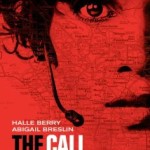 The Call, starring Halle Barry, makes the viewer feel the action. A young woman has been kidnapped, spending the first half the movie in the trunk of a car, the second half in an underground asylum. Barry’s character is the only person connected to her as a 911 dispatcher through her cell phone. A psychotic, multiple-murderer is about to kill his next victim. The Call takes us through the waves of emotion flowing through the screen. I could not contain my passions. I stood, yelling through the intense final scenes.
The Call, starring Halle Barry, makes the viewer feel the action. A young woman has been kidnapped, spending the first half the movie in the trunk of a car, the second half in an underground asylum. Barry’s character is the only person connected to her as a 911 dispatcher through her cell phone. A psychotic, multiple-murderer is about to kill his next victim. The Call takes us through the waves of emotion flowing through the screen. I could not contain my passions. I stood, yelling through the intense final scenes.
Liam Neeson made me feel what he felt all the way through Taken. I identified with his  father’s psyche, the compulsion to find and stop his daughter’s kidnappers before she was sold into Middle Eastern slavery. Neeson’s character had been trained in the finer arts of anti-terrorism. I can only wish to be so virile, so well equipped in physical recompense.[1] I know the character’s response and the movie’s situations were improbable. But exaggerated does not mean fictitious. Fictional stories on screen occur to some degree every day. The stunts are fantastic, the violent displays are frenetic, the action is frantic. But movies tie into my emotional makeup.
father’s psyche, the compulsion to find and stop his daughter’s kidnappers before she was sold into Middle Eastern slavery. Neeson’s character had been trained in the finer arts of anti-terrorism. I can only wish to be so virile, so well equipped in physical recompense.[1] I know the character’s response and the movie’s situations were improbable. But exaggerated does not mean fictitious. Fictional stories on screen occur to some degree every day. The stunts are fantastic, the violent displays are frenetic, the action is frantic. But movies tie into my emotional makeup.
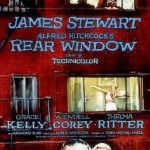 If a story does not make you feel, the story does not work. Hitchcock ties us to his Lifeboat. We agonize with each member of the group. But in the end we are left to answer “What would I have done?” Rear Window turns voyeurism into a cry for help. We find ourselves talking to the screen again: “Watch out!” “Don’t go!” “He sees you!” Cape Fear makes us dread doing the right thing because the right thing might come back to kill us through the wrong man. Night of the Hunter makes us never want to let our children out of the house or talk to strangers. Running Scared makes us endure the chase, the solution, seemingly just out of reach.
If a story does not make you feel, the story does not work. Hitchcock ties us to his Lifeboat. We agonize with each member of the group. But in the end we are left to answer “What would I have done?” Rear Window turns voyeurism into a cry for help. We find ourselves talking to the screen again: “Watch out!” “Don’t go!” “He sees you!” Cape Fear makes us dread doing the right thing because the right thing might come back to kill us through the wrong man. Night of the Hunter makes us never want to let our children out of the house or talk to strangers. Running Scared makes us endure the chase, the solution, seemingly just out of reach.
“I love justice movies because I do not see enough justice in this life.” My students have heard me say this for 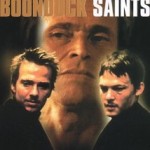 years. Studying the justice of God I would show my class the opening scene of Boondock Saints. Two Irishmen are praying during a worship service. Their prayers follow the impreccation of Moses, “When I sharpen my flashing sword and my hand takes hold on judgment, I will take vengeance upon my enemies” (Deuteronomy 32:41).[1] They rise from their kneeling benches, walk to the chapel front, and pay homage to Jesus’ statue. As they turn to walk up the aisle toward the exit, the padre begins his homily. The priest recounts the story of Kitty Genovese, stabbed to death in broad daylight in 1960’s New York City. Many heard her cries for help, but no one came to save her. The Catholic priest brings his sermon to application as he states, “We must all fear evil men but there is another kind of evil which we must fear most and that is the indifference of good men.” Outside the cathedral one Irishman turns to the other declaring, “I do believe the Mon-senior finally’s got the point.”
years. Studying the justice of God I would show my class the opening scene of Boondock Saints. Two Irishmen are praying during a worship service. Their prayers follow the impreccation of Moses, “When I sharpen my flashing sword and my hand takes hold on judgment, I will take vengeance upon my enemies” (Deuteronomy 32:41).[1] They rise from their kneeling benches, walk to the chapel front, and pay homage to Jesus’ statue. As they turn to walk up the aisle toward the exit, the padre begins his homily. The priest recounts the story of Kitty Genovese, stabbed to death in broad daylight in 1960’s New York City. Many heard her cries for help, but no one came to save her. The Catholic priest brings his sermon to application as he states, “We must all fear evil men but there is another kind of evil which we must fear most and that is the indifference of good men.” Outside the cathedral one Irishman turns to the other declaring, “I do believe the Mon-senior finally’s got the point.”
 We are made to desire justice because we bear the image of The One who is the Just Judge. However, we struggle to restrain ourselves from revenge while we enact movement toward justice (Proverbs 20:22; Isaiah 58-59; Romans 12:17-21; Hebrews 10:30). Herein is the conundrum of films like Punisher or Law Abiding Citizen. We like to see recompense in movies–the innocent cry for justice–knowing that the ultimate recompense is yet to come (Revelation 22:10-13, 15):
We are made to desire justice because we bear the image of The One who is the Just Judge. However, we struggle to restrain ourselves from revenge while we enact movement toward justice (Proverbs 20:22; Isaiah 58-59; Romans 12:17-21; Hebrews 10:30). Herein is the conundrum of films like Punisher or Law Abiding Citizen. We like to see recompense in movies–the innocent cry for justice–knowing that the ultimate recompense is yet to come (Revelation 22:10-13, 15):
Criminals brought to justice in The Dark Knight or Boy Wonder.
Vengeance becomes justice: Braveheart or The Brave One
Standing up for others: Tears in the Sun or Machine Gun Preacher
Damsel in distress: Transporter or Cellular
Women protecting children: The Missing or Winter’s Bone
Fathers exacting recompense: Death Sentence or Edge of Darkness
Self-protection from abusers: Enough or Sleeping with the Enemy
Save the neighborhood: Harry Brown or Gran Torino
Awakening one’s conscience to do the right thing: 16 Blocks or The Patriot
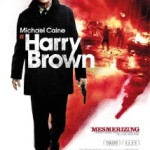 We are reticent to tell others we like “justice movies” because we live in an age of niceness. But the world is not nice. Evil exists and must be stopped. Yes, it would be nice to think everything can be solved by human love, mercy, kindness, and generosity. Only Jesus can establish peace for humans after His ultimate recompense. We should be honest with ourselves. We like to see the bad guys “get it in the end.” It is a human response to evil, because we bear the image of The One who is just.
We are reticent to tell others we like “justice movies” because we live in an age of niceness. But the world is not nice. Evil exists and must be stopped. Yes, it would be nice to think everything can be solved by human love, mercy, kindness, and generosity. Only Jesus can establish peace for humans after His ultimate recompense. We should be honest with ourselves. We like to see the bad guys “get it in the end.” It is a human response to evil, because we bear the image of The One who is just.
_________________________
Mark realizes that not all his friends will agree with this perspective on earthly justice or react well to biblical recompense. Dr. Mark Eckel believes that defense against evil requires equal force to overcome an adversary. Dr. Eckel has written that violence and warfare against evildoers is a necessary act of love. And see the many comments which counter tyranny with freedom in “Under the Desk but Not Underground.”
[1] Recompense in First Testament teaching often has to do with proportionate justice. If someone steals or injures, depending on the situation, restitution or replacement is to take place (Exodus 21-22; Leviticus 24:17-21; Luke 19:1-10). Governmental force has been given by God to stop evildoers in the famous Romans 13 passage. There are important prerogatives given by James Turner Johnson in his chapter “The Right to Use Armed Force,” in Just War: Authority, Tradition & Practice. I am using the word “recompense” in the Hebraic ideal of proportionate justice, not taking justice into one’s own hand. Again, my point is not to suggest Hollywood films are exact replicas of biblical teaching on justice: they often are not. However, they bear resemblance–just as do love stories–to the essence of God’s nature imprinted in us.
[2] Imprecatory Psalms, such as 109 or 137, outline very human and very troubling responses to evil this side of heaven. Here are my “dirty dozen” responses to believers’ cries for justice now:
1. As poetry, The Psalms express emotion in poetic fashion. Personification, hyperbole, etc. are normal but hyberbolic responses to actual desires is normal in ancient Near Eastern expression.
2. As reality, The Psalms are expressions of humans in crisis, responding to injustice, cruelty, oppression, slander, betrayal, conspiracy, personal distress, etc.
3. As anticipation, If there is no justice after life, there can be no justice in this life. Short-term versus long-term response to injustice.
4. As severity, The Psalms express feelings beyond what many Westerners would consider “normal” in the 21st c.
5. As misery, The Psalms are expressions of serious rage, anger, grief, and fury against evildoers.
6. As parity, The Psalms are expressions of fairness, impartiality, and even-handedness based on God’s righteousness.
7. As right, Indignation is a proper, personal response to injustice. The only possible redemption available is the pure, unadulterated innocence of Jesus’ sacrifice.
8. As loyalty, The Psalms are expressions of a theocratic commitment to the Suzerain-vassal treaty where the king protects his subjects. Prayers to “break the arms of the wicked” (Ps 10:15) or “smash the teeth” (58:6) or “turn your wrath upon” (69:22-28) would not be an expression of personal revenge but of Eternal retribution promised by the suzerain (e.g. Deuteronomy 32:35-36).
9. As guarantee, The Psalms promise and predict what He will do (1:4 and 35:5; 35:8 and 9:15; 35:26 and 6:10).
10. As control, Imprecatory Psalms actually restrain the believer from physical violence, leaving the response of injustice to God.
11. As finality, The Psalms are expressions of God’s promise that evil and evil doers would be defeated and overthrown.
If the Jews cursed more bitterly than the Pagans this was, I think, at least in part because they took right and wrong more seriously. For if we look at their railings we find they are usually agree not because these things have been done to them but because these things are manifestly wrong, are hateful to God as well as to the victim. C.S. Lewis, Reflections on the Psalms (1958): 30.
12. As jealousy, The Psalms express God’s zeal for His people and His righteousness.

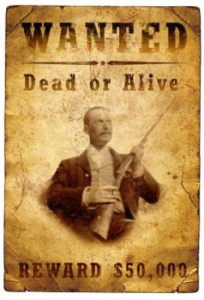
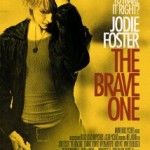
Thanks Mark, good food for thought.
How about Quigley Down Under for several of your categories.
For Psalms, our church is using the book Reading the Psalms with Luther (see below) to sing (“chant”) the exact words of the Psalms from the ESV. It has been great for us to both learn the Psalms and to pray them back to God.
https://www.amazon.com/Reading-Psalms-Luther-Martin/dp/075861375X
Good thoughts, I appreciate the rundown and perspective on the Psalms. Just spoke briefly with a guy in our church this past Sunday with limited understanding of the imprecatory side – he felt that all the people were doing was “moaning and …” I may print your comments for him to consider, especially since I have exposed our folks to the suzerainty treaty / vassal relationship recently in our series in Leviticus. I hope I helped and not confused them with it.
This was a good one, Dr. Eckel. It was a great tie-in of media with Christian truth. That is almost always an effective means to use when preaching. Movies and stories reflect human longings for things such as justice and love, and these are indeed characteristic of the image of God in all human beings.
I was very appreciative of your explanation of the imprecatory psalms. It was thorough, for the brevity required, and took historical and cultural context into account.
I have a strong thirst for justice. Unfortunately, my sinful nature tends to turn that thirst for justice into a thirst for vengeance. This is especially true when people get away with a heinous act they CLEARLY committed and have no form of repentance whatsoever. It is also especially true when I think and speak on abortion with friends and family. I’m very passionate about such things.
I think one thing that bothers me so much about injustice is the lack of repentance. I’ve found that those who are repentant are much easier to forgive and love.
But then, we’re commanded even to love our unrepentant enemies, aren’t we (Matt. 5:43-48)?
Thanks for this, Dr. Eckel. I always love the way you combine culture with your teaching.